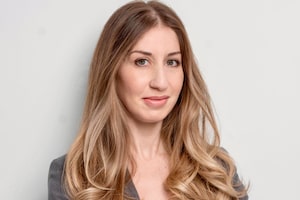
Prime Minister Justin Trudeau speaks outside his residence at Rideau Cottage in Ottawa, on June 18, 2020.Justin Tang/The Canadian Press
Canada’s failure to secure a non-permanent seat on the United Nations Security Council (UNSC) is an extremely necessary check to this country’s often outsized ego.
By almost every objective measure, Canada did not deserve to win the seat. We spend considerably less on foreign aid as a percentage of our GDP than Norway, which earned the most votes at the UN on Wednesday. Our recent peacekeeping record – that is, that one Mali mission that ended earlier than was requested – is far less robust and consistent than that of Ireland, which came away two votes shy of Norway. Both Ireland and Norway have been chasing the seats for a decade; Canada only started its efforts back in 2016.
Our current foreign-policy outlook is basically a potpourri of contradictions – it smells good, serves no meaningful purpose and crumbles under even the slightest pressure. Indeed, the “new Canada” – the one that came “back” in 2015 after the Conservative government was shown the door – preaches about human rights but sells arms to Saudi Arabia. We wax about promoting our democratic values abroad but seize up when Beijing moves to quash democracy in Hong Kong. We are vocal in standing up for LGBTQ rights, except when we want to win the Security Council support of Senegal, where same-sex discrimination is enshrined and enforced in law. And our Prime Minister takes 21 seconds to think of what to say when the U.S. President threatens to unleash his own military against his country’s citizens.
Speaking to media following Canada’s UN defeat, Foreign Affairs Minister François-Philippe Champagne nevertheless maintained that “the voice of Canada matters more than ever.” Except we’ve seen that Canada only uses that voice when it thinks it won’t offend anyone who could be listening. That is not a voice that matters. And it’s certainly not a voice that is owed a spot on the Security Council.
The good news for Canada is that we are probably no worse for the loss (notwithstanding the time, money, trades and ethical concessions we forfeited over these last four years). As a non-permanent member of a council controlled by its five veto-holding participants, Canada’s influence on the council would only extend to a level that Russia or China would allow. The progressive principles Canada hoped to champion as a member of the UNSC – of gender equality, of tolerance and inclusion, of climate-change mitigation and so forth – will be well represented in our absence by Ireland and Norway. And if anything, Canada was spared the discomfort of being in a position where we would have been asked and expected to regularly take sides on contentious global issues. Fence-sitting, to which we have grown rather accustomed, doesn’t come as easily when matters are put to a Security Council vote. In this way, Canada’s government should be relieved to have one fewer venue in which it could potentially offend the Chinese and invite further retaliatory measures.
But while the defeat at the UN might not be a major loss for Canada, it is a tremendous loss for Prime Minister Justin Trudeau personally, who attached himself so emphatically to the idea of his government returning Canada to its “honest broker” role on the world stage. Reclaiming a seat on the UNSC was a cornerstone of his government’s foreign-policy outlook, which has long been hazy on policy specifics but enthusiastic about Canada somehow fulfilling a peacekeeping vacancy on the world stage.
“Canada needs to once again re-engage as a robust and helpful member of the international community,” Mr. Trudeau said in 2015, about five years after the Harper government lost its UNSC bid to Portugal and Germany. “That’s where we have to turn it around by re-engaging as a strong partner in international efforts to hold bullies like Vladimir Putin to account.” Mr. Trudeau assured Canadians that, under his government, Canada would win the next vacancy on the UNSC.
That did not happen, and now the message has changed. In recent days, both Mr. Trudeau and Mr. Champagne have said that a seat on the UNSC was always a “means to an end” and not an end in itself. If that is true, we should look forward to learning what Canada’s foreign-policy end actually looks like. Canada can likely do far more in terms of peacekeeping, diplomacy and foreign aid outside of the Security Council than in, especially considering that the council won’t take up issues that its veto-holding members would prefer to ignore. But to do that, Canada has to stop with the potpourri and focus instead on something real. We always thought we smelled better than the rest of the world did, anyway.
Keep your Opinions sharp and informed. Get the Opinion newsletter. Sign up today.
 Robyn Urback
Robyn Urback